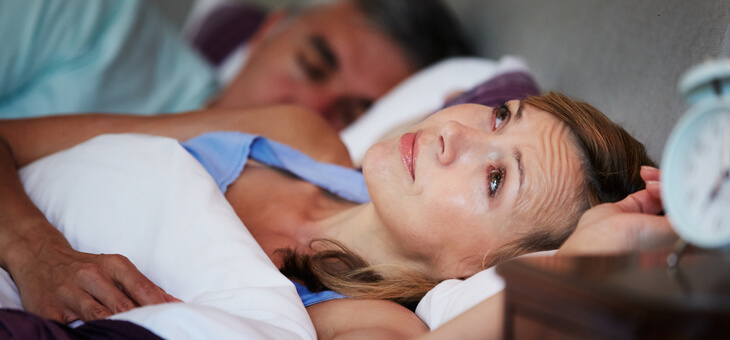You might have noticed as you’ve got older that a night’s sleep doesn’t yield the same level of restoration as it once did.
Experts believe this could be because as we age, we spend less time in a crucial stage of deep sleep most responsible for feeling rested.
Our bodies progress through different stages of sleep throughout the night, known as the sleep cycle. Each full cycle lasts between 70 and 100 minutes, with shorter cycles earlier in the night and longer ones later.
The cycle progresses from light sleep in stage one through to the deepest sleep at stage three, before entering rapid eye movement (REM) sleep at stage four, a period of high brain activity where we dream.
Read: What to do if you’re struggling with a sleep routine
Studies have shown that as we age, we spend less and less time in stage three.
Each stage plays a different role in the restorative function of sleep. In the first three stages, known as the non-rapid eye movement (NREM) stages, brain and body functions gradually slow down.
At stage three, our brains are at their most relaxed, and your breathing and heart rate have slowed considerably.
This allows for the highest levels of bodily recovery. It’s essential for muscle and tissue growth, as well as cellular repair. It may also bolster your immune system and other key bodily processes.
It is estimated that approximately 75 per cent of our total growth hormones are secreted during this stage and there is also evidence that deep sleep contributes to creativity, memory and insightful thinking.
Read: Where to go for the best night’s sleep
How long we spend in deep sleep changes throughout the night. We spend the most time in deep sleep during the first half of the night.
During the early sleep cycles, stage three sleep commonly lasts for 20–40 minutes. As you continue sleeping, these stages get shorter, and more time is spent in REM sleep instead.
So as the time spent in this stage decreases even further with age, a full night’s rest won’t provide the same level of rest it did when you were younger.
So what can be done about it? Thankfully, there are a number of steps you can take to improve your sleep quality.
Read: Do sleep teas really work?
Exercise is one way of getting more deep sleep. Research on middle-aged and older adults has shown that exercise promotes increased sleep efficiency and duration regardless of the mode and intensity of activity.
It might not seem like it but drinking too much alcohol before bed can also be detrimental. Although you may fall asleep quickly, alcohol is known to significantly inhibit your ability to maintain stage three sleep.
Sleep supplements can also improve sleep naturally. These include products such as melatonin, valerian root and magnesium.
Have you noticed not feeling as rested after sleep as you once did? Do you have any tips for getting a good night’s sleep? Let us know in the comments section below.
If you enjoy our content, don’t keep it to yourself. Share our free eNews with your friends and encourage them to sign up.

